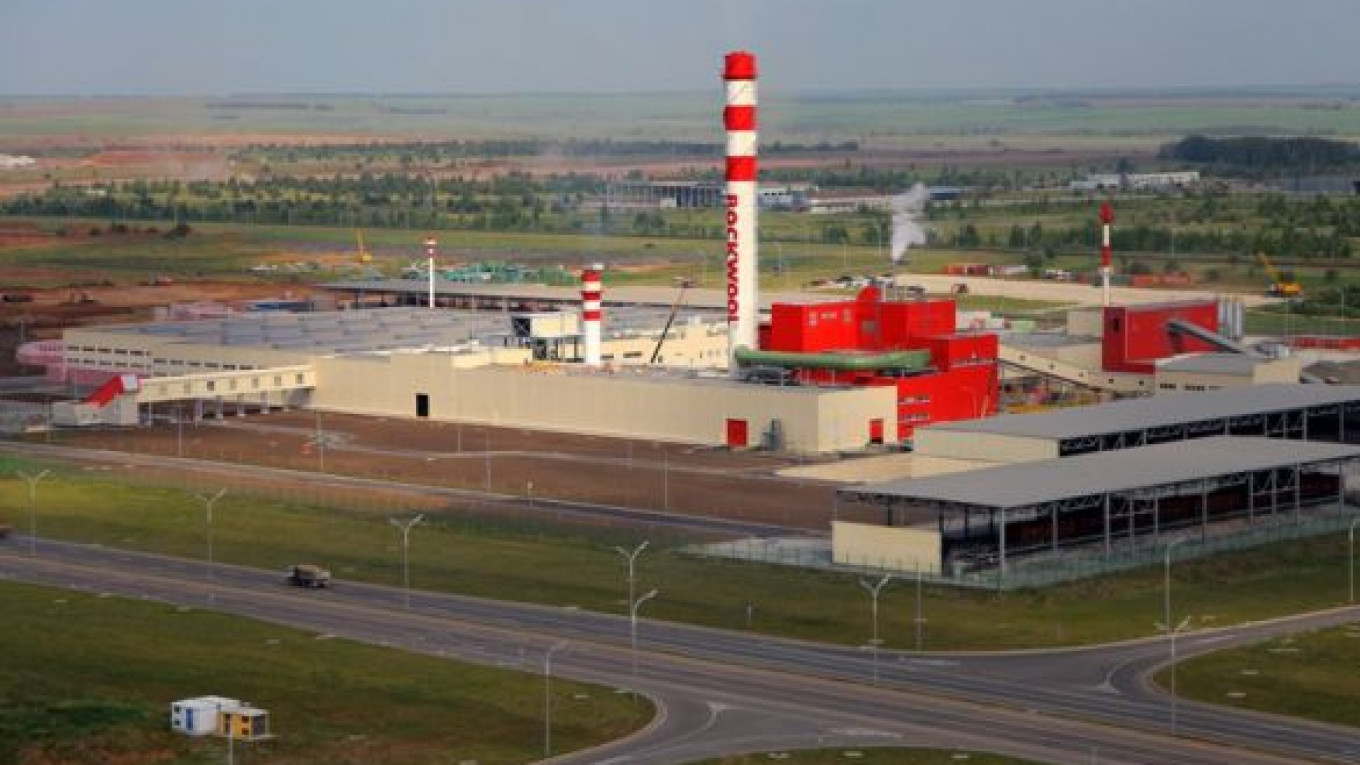Even customs officers received praise Monday when foreign investors heaped accolades on the Alabuga special economic zone.
In terms of attracted investment, Alabuga, in Tatarstan's Yelabuga region, is the biggest of the 16 zones in the country where the federal government and regional counterparts have created favorable conditions for businesses, including on-site customs offices.
Nicholas Vince, general director of the Russian division of Danish insulation maker Rockwool, displayed a snapshot of cheerful customs officers as part of his presentation. He said they differed greatly from typical customs employees.
"First of all, they are smiling," he said during a promotional event for the site.
He added that the officers said they shared the company's goal of starting the Alabuga plant on schedule. (It began operating in March, as planned.)
"My staff who deal with customs officials nearly fell out of their chairs when they heard it," Vince said.
Rockwool invested $150 million to build the plant.
Vince also lauded the support of regional authorities, led by Tatarstan President Rustam Minnikhanov. Rockwool needed permission from 30 authorities to produce and sell its insulation, and the process was painless, Vince said.
"If you have supportive authorities, it may make a huge difference," he said.
The company's list of things to look for when planning construction of a new plant identifies support from authorities as condition No. 1. Vince added that Alabuga's tax incentives are nice.
Like the other zones, Alabuga offers rebates on the profit tax and land tax. Investors also enjoy a lack of import duties and free connection to the electricity grid, which costs $1 million per megawatt in Moscow, according to a press handout.
Six companies, including Rockwool, have started production in Alabuga. Some of the others are domestic carmaker Sollers and French producer of industrial gases Air Liquide.
Minnikhanov said at the event that Tatarstan would double the size of the zone to 40 square kilometers to accommodate future investors.
Andrew Somers, president of the American Chamber of Commerce in Russia, said he visited Alabuga in March and spoke with directors of three enterprises that operate there. They all praised how the authorities run the place, he said, adding that the decision to expand was great.
"The word is getting out to the foreign community," he said.
Cheers for the effort also came from a representative of a fellow developing economy: Turkey. Onur Guven, development director for Hayat Group, said the company navigated the bureaucracy with ease and appreciated the good location and the workforce potential.
Hayat plans to invest 500 million euros in plants to produce wood-based panels, such as hardwood floors, and tissue paper.
Nationwide, the government has spent $1.5 billion on providing utilities and public services in the zones since their creation in 2005, said Oleg Kostin, chief of the Special Economic Zones, the company that manages them.
The zones have drawn $2 billion in private investment so far, with Alabuga leading the way, he said.
Related articles:
A Message from The Moscow Times:
Dear readers,
We are facing unprecedented challenges. Russia's Prosecutor General's Office has designated The Moscow Times as an "undesirable" organization, criminalizing our work and putting our staff at risk of prosecution. This follows our earlier unjust labeling as a "foreign agent."
These actions are direct attempts to silence independent journalism in Russia. The authorities claim our work "discredits the decisions of the Russian leadership." We see things differently: we strive to provide accurate, unbiased reporting on Russia.
We, the journalists of The Moscow Times, refuse to be silenced. But to continue our work, we need your help.
Your support, no matter how small, makes a world of difference. If you can, please support us monthly starting from just $2. It's quick to set up, and every contribution makes a significant impact.
By supporting The Moscow Times, you're defending open, independent journalism in the face of repression. Thank you for standing with us.
Remind me later.






